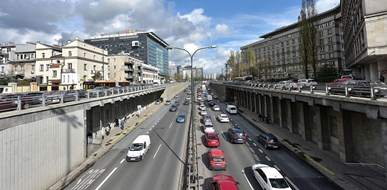Policy Brief: Street Renaming after the Change of Political Regime
Published 3 May 2018
In light of recent legislative developments in Poland, T.M.C. Asser Institute senior researcher Dr. Ulad Belavusau and a visiting researcher from the Polish Academy of Sciences, Ms. Anna Wojcik have published a policy brief on the practice of street re-naming.
The policy brief unpacks the spreading phenomenon of re-naming streets as part of a mushrooming of so-called memory laws. A 2017 Polish law on street de-communization is taken as a case study which Ms. Wojcik and Dr. Belavusau scrutinize from the perspectives of subsidiarity of government, democratic participation, political pluralism, minority rights, and freedom of speech. Based on their research in the area of memory laws, the brief offers ten policy recommendations, followed by good practices for mitigating any negative effects of such street re-naming legislation.
While the brief is a practical guide for legal practitioners and policymakers alike, Dr. Belavusau and Ms. Wojcik also wrote an article on the renaming of streets in Poland, published in New Eastern Europe magazine. This piece takes a more current affairs perspective, providing details of the political climate in Poland regarding memory laws. Taking historical figures Bruno Jasieński, Józef Lewartowski and Branisłaŭ Taraškievič as examples, the authors elaborate on the implementation process of the Polish street de-communization rules.
Both scholars are part of the MELA project (Memory Laws in European and Comparative Perspective).
